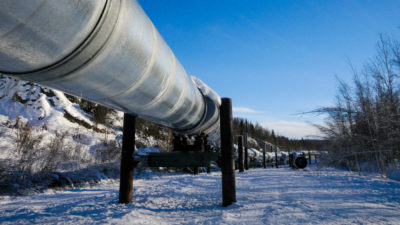Oil producers are facing challenging times right now, with prices continuing to slide as a well-supplied market has overshadowed the uptick in geopolitical tensions in oil-producing regions. Since June, U.S. crude prices have declined almost 10%.
This week, oil took another hit as the Energy Information Administration decreased its 2014 price forecast for West Texas Intermediate crude as July production rose to a 27-year high. The EIA now expects that WTI will average $100.45 a barrel this year versus its prior estimate of $100.98. Looking forward to 2015, the EIA expects oil production will hit a 43-year high.
This well-supplied market is likely to continue to underpin prices, and while many oil producers will struggle, low-cost Canadian oil producers such as Canadian Natural Resources Limited (TSX: CNQ)(NYSE: CNQ) could benefit.
Recent study disproves sentiment that oil sands operations are more expensive
Two studies released earlier this year, one from The Bank of Nova Scotia and one from Bank of Montreal, show that oil sands production costs fall below most U.S. tight oil plays.
Bank of Nova Scotia’s study of over 50 oil plays in North America found that western Canadian plays, even in the oil sands, cost less to produce than the popular U.S. plays, including the Bakken. This finding came as somewhat of a shock because the sentiment surrounding North American oil plays was that operating costs on the Albertan oil sands were higher than U.S. shale plays. The perception that U.S. costs were lower has pushed up the price of U.S. oil producers, so now investors have reason to place their bets on Canadian oil sands producers.
Improving technology has reduced production costs in Canada, making it an unfair stereotype to consider the country’s oil sands as high-cost operations. The Bank of Nova Scotia study showed that in-situ oil sands projects in Alberta produce oil at an average breakeven cost of U.S.$63.50 per barrel, and that oil from existing integrated production has a breakeven cost of U.S.$60-U.S.$65. Both breakeven cost points include an after-tax return of 9%.
In contrast, oil produced from the U.S. Permian Basin has a breakeven cost of U.S.$81 a barrel, while U.S. Bakken oil breaks even at U.S.$69 per barrel. The only U.S. production that can match Canada’s production costs is the Eagle Ford Shale, which comes in at U.S.$63.57 per barrel.
Tough times could be good for this low-cost producer
Canadian Natural Resources is Canada’s largest independent oil and gas producer. The company focuses on long-life, low-decline assets and is widely recognized as a low-cost producer of heavy oil, which leaves the company well-positioned to survive during times of lower oil prices.
The company could use the slump in oil prices to improve its long-term position as a low-cost producer by purchasing smaller oil companies who are not as well-positioned to withstand a stretch of low oil prices.
It is interested in acquisitions, as evident by its recent purchase of Devon Energy Corp’s (NYSE: DVN) conventional oil and natural gas fields in Canada for $3.13 billion. According to the company’s management, this acquisition provides immediate value to shareholders through production and cash flow. More acquisitions like this could help Canadian Natural Resources cement its future as one of the best low-cost oil producers in the world.







